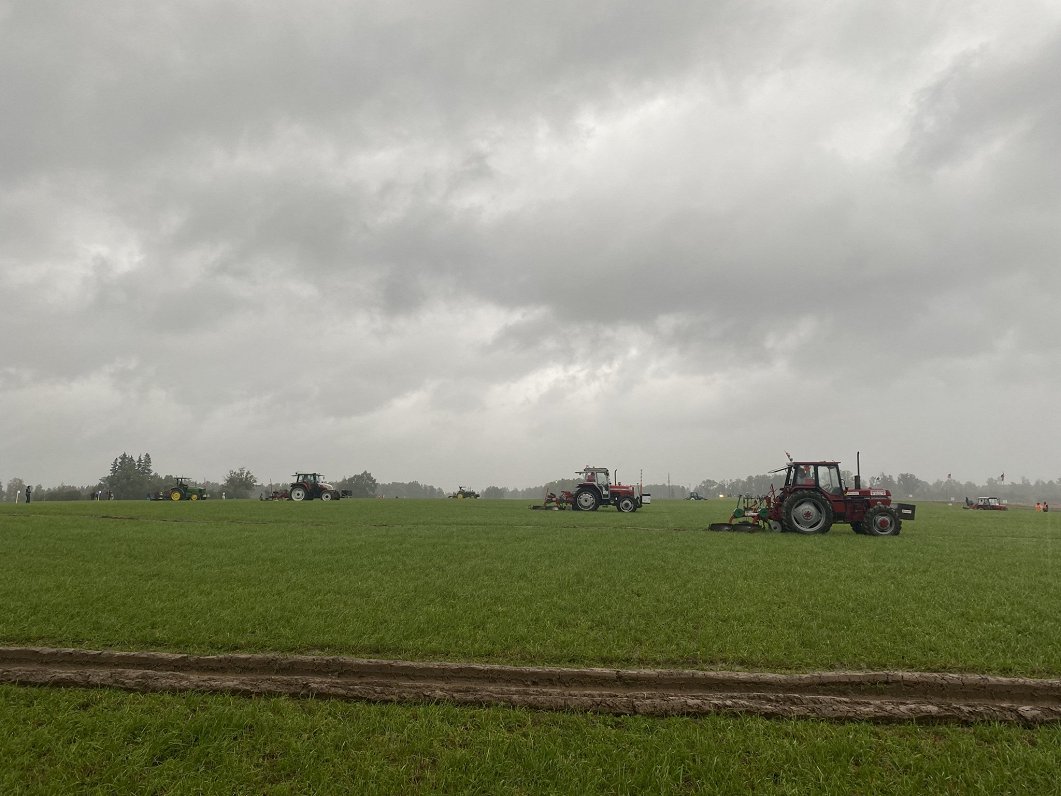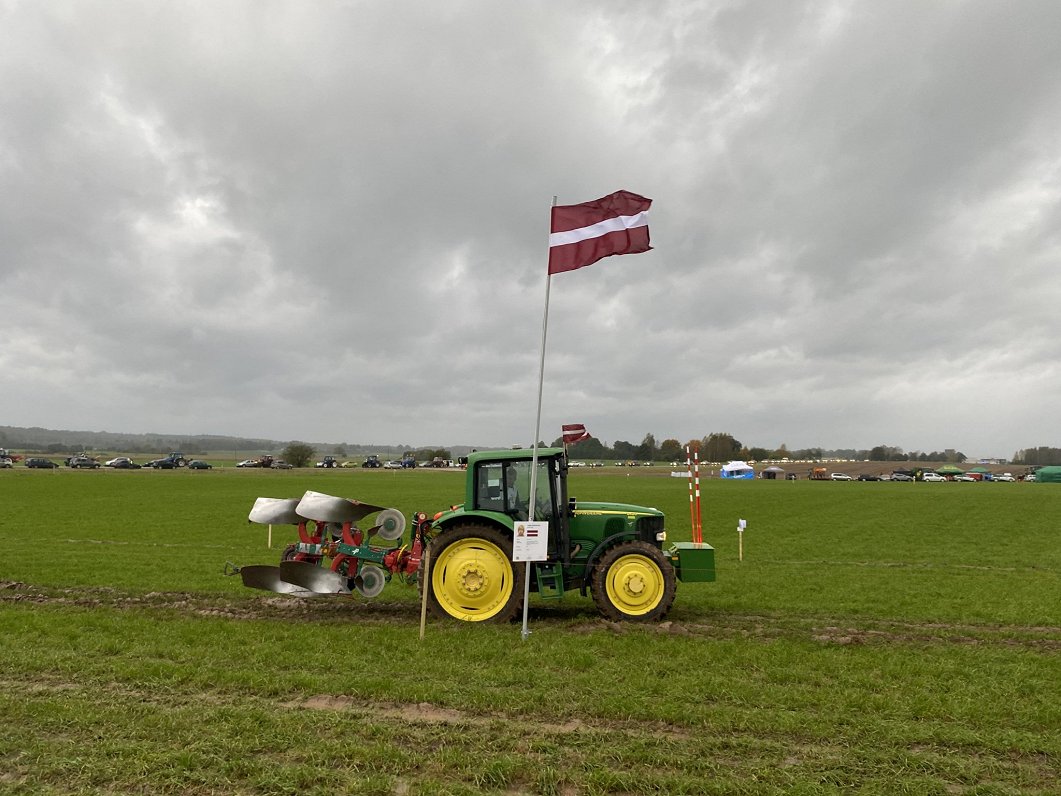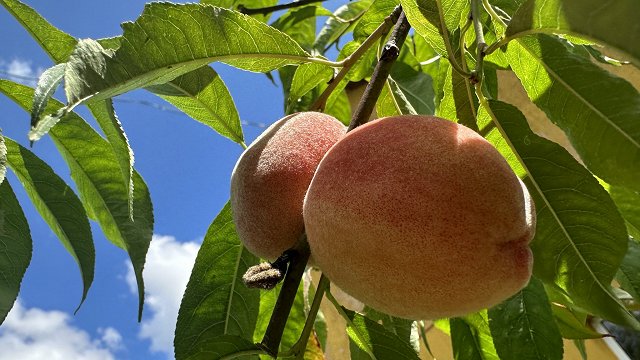On the plough, get set, ready and go! More than 40 ploughmen from all over the world have been in the wide fields near Kuldiga for the 68th World Ploughing Championship on 13 and 14 Oktober to pursue the perfect plot.
For two days the powerful rumble of tractors echoed across the 120-hectare venue in Padure parish that is located only a few kilometres from the recently UNESCO World Heritage-listed heart of the city. A rural market, farm equipment display and musical performances all added to the fun for the numerous spectators attending the event.
During the two-day competition, the world-best ploughmen were chosen in two disciplines after the traditional tractor parade at the beginning of each day: the stubble contest on a harvested grain field and the grass contest on plain grassland.
“I am really proud that the World Ploughing Championship is being held in Latvia this year“, Latvian Minister of Agriculture Armands Krauze said at the opening. “Since ancient times, Latvian farmers have been tied to the land, and we Latvians call ourselves a ploughing nation.“
Krauze’s excitement was shared by Aigars Laurinovičs, Chairman of the board of the Latvian Ploughing Organization and board member of the World Ploughing Organisation:
"Latvia has a historic opportunity to host such world-class events. While only one can win, all will be winners because they will have the chance to get to know our beautiful country", he said, adding the hosting international competition contributes to the recognition of Latvia and shapes its image.
Turning the competitive sod at the World Ploughing Championships in Latvia were participants from 24 nations. Most of them have traveled long distances from across Europe, while some were coming from as far as New Zealand, Canada or Kenya.
The host nation was represented by two ploughmen: Jānis Vaitkevics from the farm "Mārtiņi" in Jaunbērze and Ričards Dambergs, a student of Kandava Technical School.
"In ice hockey we got to bronze, and we did very well in basketball at the world level. You also have to try to show something in ploughing,” Vaitkevics told Latvian Television.
Perfect ploughing in action
Competing on an allocated area of 20 by 100 meter next to flags representing their nationality, each participant had to show his skill in handling plough on his individual terrain. The most important thing is precision: The line has to be straight and neat, and the furrow the same height and width. Each of them has to be drawn right and is examined by an international jury, which will focus on twelve different indicators such as straightness of the furrow, clearance or needed time.
The competition is fierce and intensive. Anyone who might think that the Championship is simply about driving against each other across the field, is completely wrong. It is all about high-performance plowing and the competitors are battling it out with state-of-the-art machinery that are hardly commercially available.
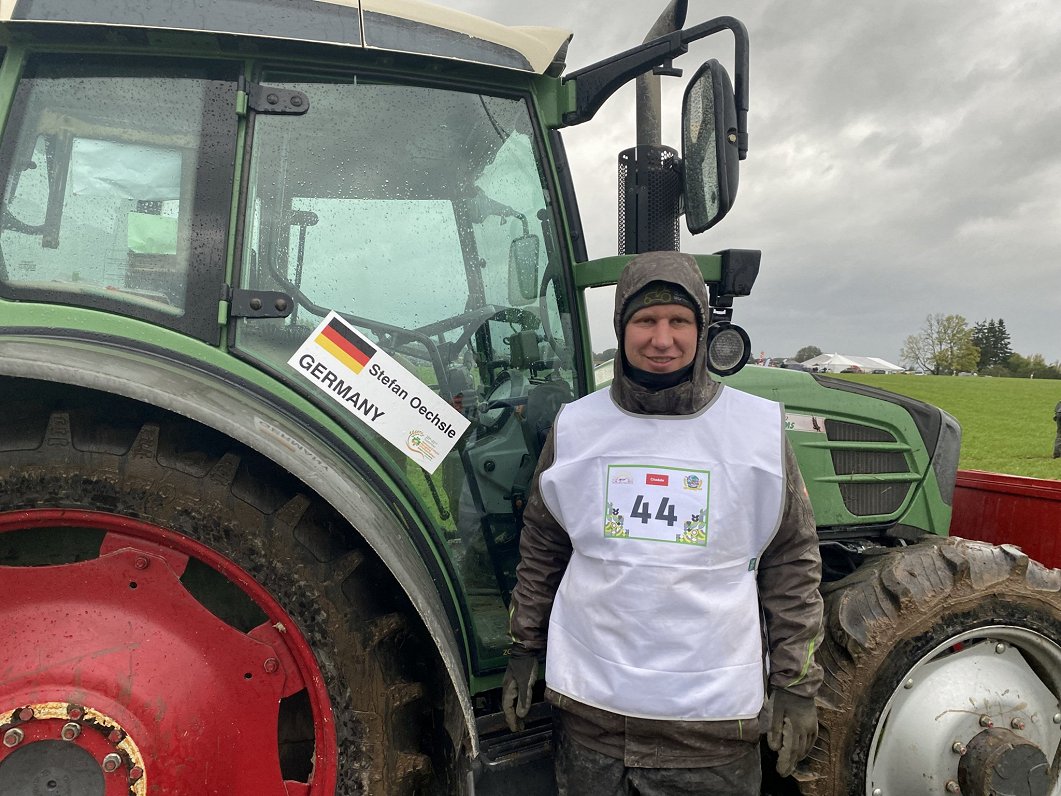
“Nothing is actually standard any more at the ploughs,” German participant Stefan Oechsle told LSM, while making last minute adjustments on his plough before the competition. “Everyone creates and engineers something that they think will add the necessary quantum of success to be slightly ahead of the others. It is all about nuances – every little detail can make a difference."
Especially the participants from Great Britain are said to be very ambitious and obsessed with their equipment but also other nations put a lot of effort into the machinery to turn the soil. Decisive at the end, however, is ultimately still the human factor.
“Of course, you can not participate in Formula 1 races with a Volkswagen Beetle. But if I put my grandmother into a Formula 1 car, she still will not become world champion," the German team supervisor and judge Ulrich Münkle told LSM, adding that experience is crucial because ploughmen even at elite level never stop learning.
Every field is different
Many of the participants had been in Latvia already for several days or even weeks and for practise and preparation. The first container shipments of tractors, ploughs and other equipment arrived months in advance.
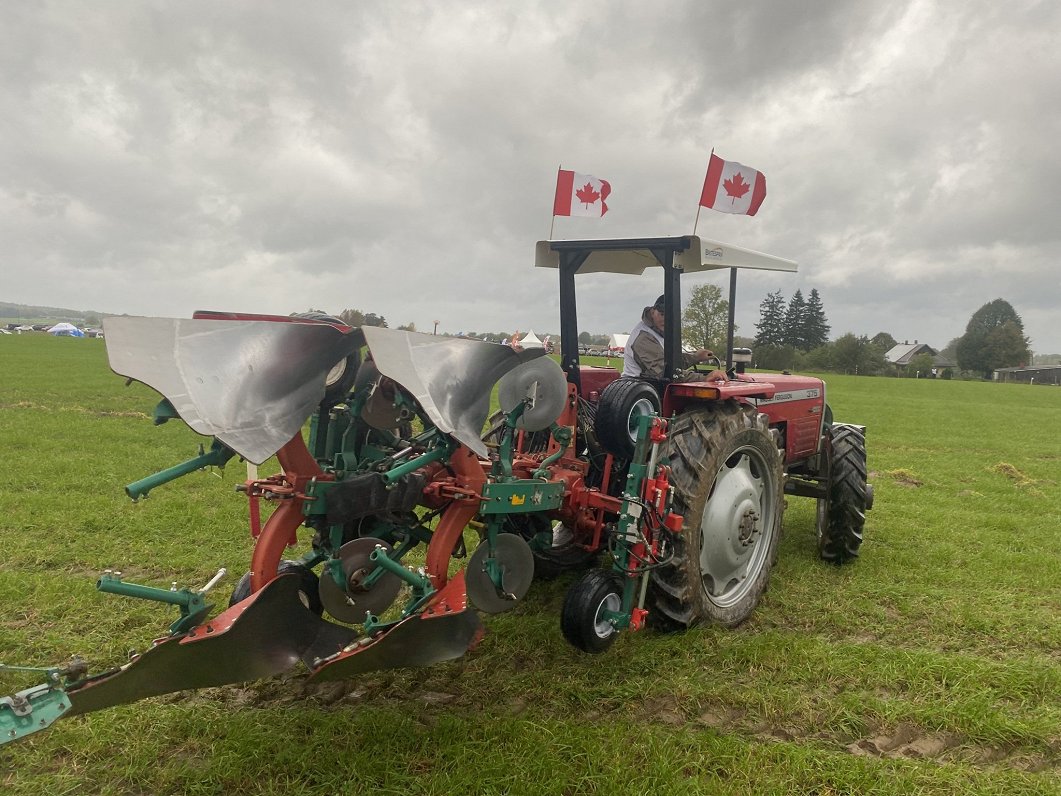
Some of the machines and gear needed to be on the road for quite a while and whether everything would arrive safely and on time was of the biggest worries of all participants. “Ploughing is all about quality, the ploughs are designed for sport and they take a lot of work to adjust”, Normunds Feters-Fekters of the competition hosting farm "Upeskalni AB" told the local newspaper Kurzemnieks, adding that organizers had done as much as they could to help the participants to get used to the Latvian soil.
“Every soil is different. Here it seems to be more sandy than at home,” Oechsle said, adding that the soil became stickier during last week after rain and cooler temperature. By training actively in the field ahead of the competition, the participants wanted to gain experience on the contest ground but the conditions during the Championship were anything but easy. Especially on the second day the pouring rain made the soil very hard to compete on.“
The weather is a disaster. All is soakingly wet,” the other German participant, Nico Röder, said, adding that in his home country usually no one would go out in the fields in these weather conditions.
“Sometimes wellies [Wellington boots] are the right diplomatic uniform…”, commented the British ambassador to Latvia, Paul Brummell, who has attending to contest to meet the participants from the United Kingdom that definitely should have been more used to the conditions than many out in the fields. Farmers have gone head-to-head in ploughing matches for centuries in rural parts of the United Kingdom.
“A bit of a special whimsy”
Röder was taking part for the first time in the World Championship in the conventional competition, while his fellow countryman Oechsle strived to get a good result in the reversible class. The pair from the ploughman community in Ulm in Baden-Wurttemberg earned their spots to contest the world after qualifying at national level on home soil.
“For me all of this has been a huge adventure. Simply unbelievable“, Röder said, adding that he was “very, very satisfied” with his results. Ending up 13th in the overall ranking, Röder achieved a respectable result at his World Championship debut, as did Oechsle with rank 12 in his class. But neither had much chance against the top performers from Ireland who dominated both competitions. Eamonn Tracey won the overall conventional class, while John Whelan won the reversible ploughing competition.
However, there was no sign of disappointment among the German team. “We all do it for fun and enjoyment, although we, of course, accept the competition”, said Münkle, describing ploughing as a competitive sport that was not about prize money but more about demonstrating skills: “Ploughmen all have a bit of a special whimsy and that is why there is a great comradeship.”
